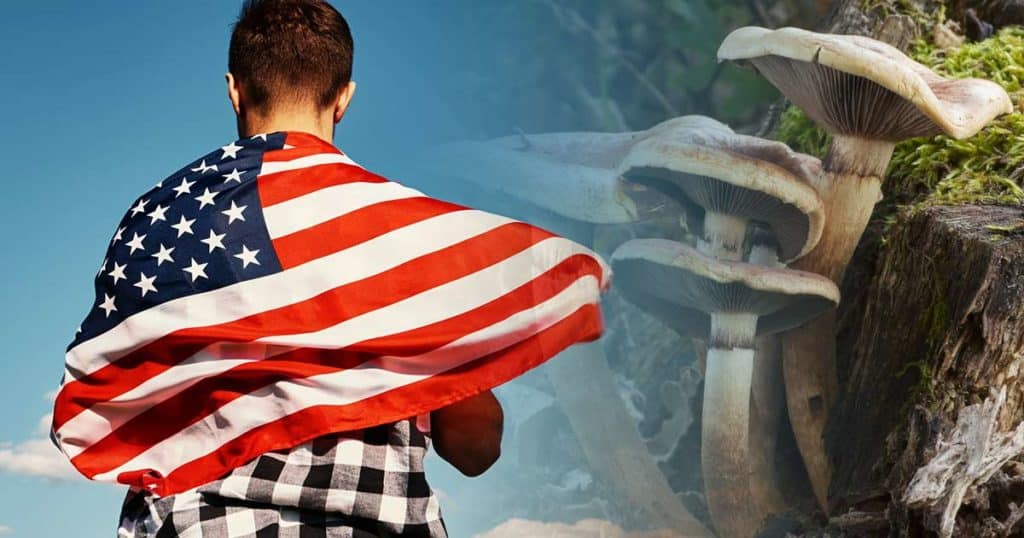After cannabis started becoming legal in more and more states, it was only a matter of time before psychedelics followed suit. Now, after years of pleading, protesting, petitioning, and throwing angry words at government officials, more states are beginning to look into psychedelic reform.
Shout For Reform From The Rooftops!
Psychedelic reform is coming, and it’s coming fast.
Over the last several months, a handful of states have introduced bills to decriminalize or legalize psychedelics for recreational use. And now, new bills are being filed in Oklahoma, Massachusetts, and Connecticut—just three of more than a dozen states looking to push psychedelic reform.
And we’re excited!
Psychedelics like psilocybin and psilocin have been shown to be incredibly helpful when treating mental health conditions like depression, anxiety, PTSD, and more. And they offer a great alternative to pharmaceutical drugs that tend to come with terrible side effects (not to mention ridiculously high profit markups).
Connecticut
Connecticut governor Ned Lamont (D) has just signed a large-scale budget bill that includes provisions for the state to provide specific medical patients with access to psychedelic-assisted treatment through the use of substances like MDMA and psilocybin.
While this legislation doesn’t legalize psychedelics up-front, it sets up the infrastructure and roadmap for patients to start receiving alternative medical treatment while state agencies are busy funding clinical trials.
It also means that we could look at possible psychedelic legalization in the coming years once alternative treatments and uses become more popular in the therapeutic and medical fields.
Massachusetts
Sen. Patricia Jehlen (D) and Rep. Lindsay Sabadosa (D) recently introduced legislation that would legalize a series of psychedelics for adults 18 and older.
The legislation states the following: “The possession, ingestion, obtaining, growing, giving away without financial gain to natural persons 18 years of age or older, and transportation of no more than two grams of psilocybin, psilocin, dimethyltryptamine, ibogaine, and mescaline, excluding the weight of any material such as water, plant, and fungi material of which the substance is a part or to which the substance is added, dissolved, held in solution, or suspended.”
This comes as big news since activists have been working hard to enact psychedelic reform in cities across the state, including Somerville, Cambridge, Easthampton, and others.
This new legislation moves towards education and harm reduction instead of criminalization.
Oklahoma
Rep. Daniel Pae (R) is again seeking to enact psychedelics reform in the Sooner State.
He is re-filing legislation that’s been dialed back from the version he sponsored last session to exclude broad decriminalization provisions and focus more narrowly on psilocybin research that would benefit medical patients.
His bill would allow universities and research facilities contracting Oklahoma institutions of higher education to conduct studies on the therapeutic benefits and potential of psilocybin and psilocin for conditions like PTSD, early-stage dementia, palliative care, opioid use disorders, chronic pain, and other such conditions.
While the bill no longer includes decriminalization, people convicted of psilocybin possession could provide an affirmative defense if they can demonstrate that they suffer from a medical condition that falls under the list of study subjects.
Again, this bill doesn’t look to decriminalize psychedelics immediately. Still, it is creating a roadmap that may lead to full legalization in the future.
An analysis published in an American Medical Association journal last month concluded that a majority of states will legalize psychedelics by 2037, based on statistical modeling of policy trends.

Enjoyed that first hit? Come chill with us every week at the Friday Sesh for a freshly packed bowl of the week’s best cannabis news!

















